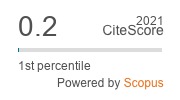Platform Economy in the Retail Sector
DOI:
https://doi.org/10.17762/msea.v71i4.1746Abstract
Traditional bricks and mortar or omnichannel retailers compete with online marketplaces, but digital connectivity is essential in all cases. The internet has been the biggest and most significant change in retailing in recent history, impacting the way businesses interact with and serve customers. While the average business traditionally operated a single, physical sales channel, many now support multiple digital and physical sales and marketing channels, including, for example, in-store and e-commerce websites and marketplaces. A blended digital retail presence that helps to offer consistently across all channels would be called an "omnichannel". The focus of the research is not on physical spaces, but on how e-commerce platforms are evolving in the digital world as the marketplace business model has transformed the way retailers operate. They explore how and why the role of the internet is a key enabler of digital connectivity. Today, sharing information and moving digital goods from one corner of the world to another is virtually free. The number of catalogues and online newspapers is almost unlimited. For thousands of years, our ancestors had great difficulty finding trading partners; today, the problem is how to choose from millions of partners the one that best suits our needs. Today, the problem is one of too wide, not too narrow, a choice that fundamentally determines our purchasing decisions and how we allocate our time and attention among this multitude of possible activities, business acts and relationships. The economy of attention fundamentally changes our behaviour and interactions, with convenience and speed coming to the fore in purchasing preferences. The most important transaction cost is therefore no longer delivery, but assessing what we have to offer and how to choose who we want to do business with, and sending the right signals and information to convince potential business partners of our trustworthiness. The unlimited availability of information and the limited time available are largely the reasons why platforms have become central to the economic process. This research explores the causes and effects that help us understand platform-based economic models and business strategies. In this context, the research focuses on asymmetric pricing and network effects and their impact on managerial decisions and calculation of RFM model to illustrate the drivers of platform growing..




